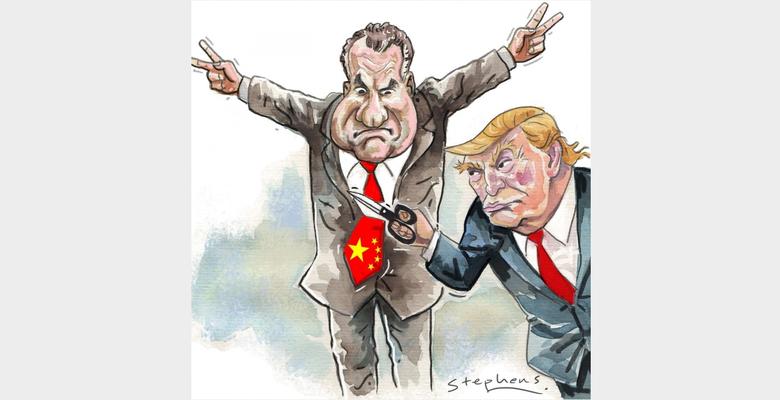
OH THESE TERRIBLE RUSSIANS, CHINESE !

By Rakesh Sharma Journalist Freelance Journalist
ENERGYCENTRAL - The Department of Energy (DOE) is planning to implement a “rip and replace” strategy to ensure cybersecurity in bulk electric power systems. The strategy involves removing parts and products made in hostile foreign countries, like China and Russia, from energy infrastructure and replacing them with local substitutes.
The Trump administration issued an executive order in May declaring purchase of parts or bulk power energy systems from such countries a national security threat. “We will be looking at identifying equipment, isolating it, monitoring it as appropriate, and where we find undue risk to the bulk power system, we will replace equipment as necessary,” Charles Kosak, Deputy Assistant Secretary for the Office of Electricity at Energy told online publication Washington Technology.
Will It Make a Difference to the Overall Market?
The order should not make a significant difference to the market for bulk electric power systems in America. Among the companies that the administration is directly targeting with this order is Chinese technology conglomerate Huawei and Russian anti-virus software company Kaspersky Labs. Both have already faced harsh action earlier. Kaspersky was banned for use within the Trump administration in 2017 and Huawei has been placed under a growing list of restrictions that make it difficult for American suppliers to export software and components to it.
According to the administration, the latter company has links to the Chinese government and is being used by that country to steal corporate secrets and track dissidents. Huawei, which makes smart meters for utilities, has denied the charges. It does not have much of a presence in the American smart meter market, which is dominated by the likes of Itron and GE Energy.
Strange as it may sound, the one area where the Trump administration’s stance may make a difference is rural electric utilities. They do not have the budget or resources to make their systems secure against foreign interference or to protect themselves against hackers. The Energy Department will “better engage” with rural utilities to ensure security for their systems. Sean Plankey, assistant deputy secretary for the office of Cybersecurity, Energy Security and Emergency Response (CESER) explained that a “lot of times the IT guy is also the security guy is also the guy who might be mowing the front lawn.” The Energy Department will spend $6 million this year to bolster security apparatus at such utilities.
-----
This thought leadership article was originally shared with Energy Central's Digital Utility Community Group. The communities are a place where professionals in the power industry can share, learn and connect in a collaborative environment. Join the Digital Utility Community today and learn from others who work in the industry.
-----












